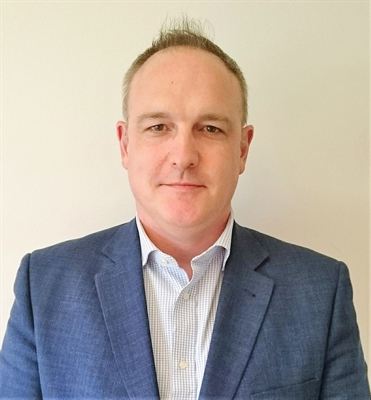Interview with Neil Thomas, Chief Business Officer in Idogen

Idogen AB’s (“Idogen”) Chief Business Officer (“CBO”), Neil Thomas, PhD, has spent the last 19 years within IP and business management in life science. He has also worked in patent law firms in London seeing the other side of patents with careful drafting of patents to secure business rights and limit possibilities for potential competitors. As an Adjunct Professor at IE Business School in Madrid Neil has also taught biotech IP strategy. In this interview, he shares some glimpses into his work in Idogen and also from previous work in TiGenix NV, which recently signed the most acclaimed licensing deal to date in cell therapy.
TiGenix NV closed a notable licensing agreement with Takeda Pharmaceutical in cell therapy this summer. Neil, could you tell us a few words about your previous engagement in TiGenix and the impact of this licensing agreement for cell therapy businesses?
In 2006 I began working with an early version of the TiGenix patent portfolio when it belonged to their subsidiary Cellerix SA, then a portfolio company of the Genetrix group in Madrid. I was responsible for guiding IP strategy and patent aspects of licensing matters for the group companies. Incidentally, a little later on, I was also a Board Member of the Uppsala-based parent company, Genetrix Life Sciences AB, where I got my first taste for Swedish biotech, something I was very happy to be able to return to with Idogen.
Myself, my IP successor in Cellerix, and the Cellerix/TiGenix scientists grew the patent portfolio over a period of years to also cover variants and improvements on the company’s founding technology – cell therapy using adult stem cells from body fat in treating inflammatory and other conditions. I was very happy to see, this July, TiGenix licensing to Takeda Pharmaceutical the global rights outside the US to develop and market TiGenix's stem cell treatment Cx601 for complex perianal fistulas in Crohn's disease patients. The licensing agreement included an upfront payment of EUR 25 million and the possibility of an additional EUR 355 million in milestone fees and double-digit royalties – a ground-breaking and impressive deal in our sector of cell therapy. Where TiGenix is leading in the sector, we hope to follow – towards successful approval of our first product and to similar international licensing deals.
Could you tell us about the recent developments within your areas in Idogen?
During the last period Idogen has filed several patent applications, protecting potential follow-up drugs with a novel or similar mechanism to zebularine. This is important work, as it further protects our methodologies from potential competition, as well as significantly strengthening our possibilities for future licensing agreements.
In my role as Idogen’s CBO, I search for and evaluate projects in cell therapy and immune tolerance on a regular basis. In assessing possible compatibility with Idogen’s future growth, it is essential that the science makes sense, has synergies with our competence and efforts and that the technology can be accessed on favourable terms. I also keep my eyes open for interesting partners for out-licensing elements of our portfolio. Big pharma companies have demonstrated interest in cell therapy and keep themselves updated on progress. To out-license part of the portfolio is a clear long-term strategy for Idogen.
In mid-2015 Idogen initiated a collaboration within IP with Sagittarius Intellectual Property Ltd. What would you say is special about Sagittarius?
I started working with Sagittarius back in 2003 as Director of IP & Technology at the Roche spin-out BioXell S.p.A. in Milan. I found in Sagittarius a competence not often seen within patent law firms - their background of working within big pharma patent departments. Sagittarius also has the wide ranging legal knowledge required and a deep understanding into how patents should be carefully drafted to protect businesses and their products in real world situations. It’s a strong advantage for Idogen and we have already seen a substantial benefit from the collaboration on our part – the Sagittarius team has been key in enabling us to improve the patent claim scope of some of our earlier pending applications. They give us solid advice and assistance in protecting our innovation.
For additional information, please contact:
Lars Hedbys, CEO
Tel: +46 - 46 - 275 63 30
E-mail: lars.hedbys@idogen.com
Idogen develops tolerogenic vaccines which re-program the immune system. The term "tolerogenic" refers to that the immune system will tolerate the selected molecule after treatment. It represents a new treatment method for autoimmune diseases, organ rejection after transplantation and patients without treatment after developing antibodies against standard treatment. The first indication for the therapy will be patients with the bleeding disorder hemophilia A who have developed an immunological reaction against their necessary factor VIII replacement.
The treatment method comprises cells from the patient's blood being reprogrammed to dendritic cells with the capacity to specifically counteract the adverse immune reaction. The company's technology platform has the potential to develop long-acting treatment of anti-drug antibodies as well as autoimmune diseases that currently cannot be cured. In addition, Idogen has the potential to change the transplantation market by reducing the need for immunosuppressive therapy after transplantation. Idogen was founded in 2008 based on a fundamental immunological discovery at Lund University. For more information, visit www.idogen.com


